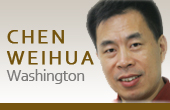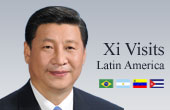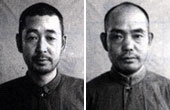Economic relations to be Australia's new form of engagement
By Christian Edwards in Sydney (China Daily) Updated: 2014-08-19 06:52
Australia's Foreign Minister Julie Bishop has outlined a new paradigm in Australia's international relations, championing economic diplomacy - a business-oriented soft power push - that she says will drive poverty elimination and overcome geopolitical challenges.
Speaking in Sydney on Monday morning to launch Australia's refreshed economic diplomacy agenda at the Lowy Institute, Bishop said, "Foreign policy is economic policy, economic policy is foreign policy".
"The coalition government has enhanced that truism by promoting 'economic diplomacy' as a core concept of our international engagement," she said.
"The goal of economic diplomacy is peace (and the) real driver of poverty elimination will always be economic growth."
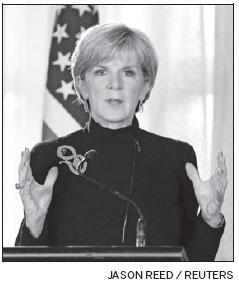
Bishop's speech represents a turning point in Australia's diplomatic strategy, and serves to simultaneously deflect criticism of the Abbott government's deep and broad cuts to regional foreign aid.
Australia's fiscal sacrifice, which was outlined in May's controversial 2014 federal budget, is the headline reduction in foreign aid spending.
World Vision Australia chief executive Tim Costello led a chorus of damnation for the cuts that he claimed made up about one fifth of overall budget savings.
Costello said the Abbott government was balancing the books on the backs of the poor.
"Of the 36 billion Australian dollars ($32 billion) budget savings, aid cuts contribute 20 percent when aid is only 1.3 percent of total budget," he said.
Bishop has dismissed this criticism, saying foreign aid plays a role in education or disaster management, "but foreign aid alone is not the panacea to poverty".
"The real driver is and will always be economic growth," the foreign minister said.
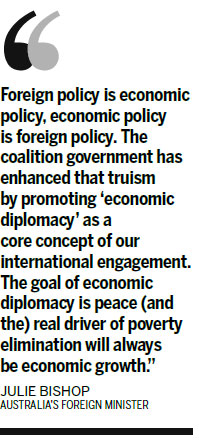
Australian soft power
The new Australian soft power - a power derived by the government's unleashing of the various sectors enmeshed in international business - will be built upon the open eddies of global business.
Bishop has already been vigorously plotting a way forward, with the 96 Australian heads - of-mission in overseas posts delivering a 2,000-page document outlining regionally specific economic diplomacy strategies.
Her soft power ploy is certain to draw cheers from the private sector, engaging, as it does, to substantially realign the work the government does overseas, "and to give the private sector and NGOs new and innovative ideas about the opportunities ahead".
China is the example
Bishop was quick to draw parallels with Australia's key economic partner, China.
The foreign minister has reiterated on several occasions China' s application of economic growth as the single core ingredient to the nation's historic elevation of hundreds of millions of citizens out of poverty.
"China is now a donor nation," she said, rather than a recipient of foreign aid.
But the new principle, while maintaining economic drivers as its engine, aims to draw in players that can contribute to more than just mutually beneficial, cross-border commerce.
'Win-win' national image
She described the new paradigm as the deployment of Australia's untapped economic assets.
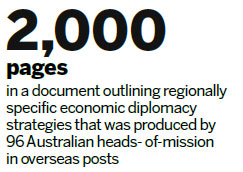
"Assets not exclusive to government and naturally including business and private sectors, community, SME's, think tanks, NGO's ... artists, athletes and actors."
With Hollywood's clarion call churning out a host of Australian A-list celebrities and the national sporting obsession serving Australia's global image as a country of Ian Thorpes and surfing legends, Bishop is drafting a strategy straight out of the soft power playbook, while anchoring engagement with China's economic "win-win" philosophies.
"Economic diplomacy is an overarching principle that puts strong economic outcomes at the center of our foreign, trade, investment, tourism and development assistance policies," Bishop said.
Xinhua
(China Daily 08/19/2014 page11)





